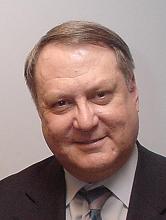By George Kane
 I've noticed that Christians seem to have a particular difficulty with the names of atheist organizations. When I debated at a Catholic men's club, I was introduced as the representative of The Atheist Society. I have heard August Berkshire mentioned on a Christian radio station as the president of "the local chapter of Minnesota Atheists."
I've noticed that Christians seem to have a particular difficulty with the names of atheist organizations. When I debated at a Catholic men's club, I was introduced as the representative of The Atheist Society. I have heard August Berkshire mentioned on a Christian radio station as the president of "the local chapter of Minnesota Atheists."
But the most persistent problems seem to be those plaguing Jay and Jordan Sekulow, the father/son duo that heads The American Center for Law and Justice. Each has a weekday radio show, and each has for many days in a row referred to American Atheists as the American Atheist Association. That sounds like a minor, harmless slip-up, but it is used too often and too consistently to be accidental. Every day they quote from American Atheists' legal briefs and web site. How can they avoid noticing the organization's name?
They do seem to like the name "Freedom from Religion Foundation." In fact, they like it so much that they always refer to the Military Religious Freedom Foundation as "The Military Freedom from Religion Foundation." I have decided that in the future, I will always refer to their organization as "The Law and Justice League of America." I just hope I do not get sued by DC Comics.
.When the Dalai Lama was in the US last month, he visited Congress. Speaking with House Speaker John Boehner and House Minority Leader Nancy Pelosi, the 76 year-old Buddhist monk said "The religious institution, the leader of the religious, and the political leadership, should be separate." I had never before seen this sentiment attributed to the leader-for-life of Tibetan Buddhism. Since his escape from China's occupation of his homeland in 1959, he has headed Tibet's government in exile, so it is at least ironic, if not hypocritical. An electrical engineer by academic degree, he has, to his credit, often supported progressive Western values. My favorite quote from him is "If my Buddhism tells you one thing, and modern science tells you something else, then my Buddhism is wrong."
When Anders Behring Breivik killed 91 in terrorist attacks in Oslo, Norway, American conservatives fumed that he was identified as a Christian. Typical was Fox news commentator Bill O'Reilly, who declared that "No one believing in Jesus commits mass murder." This is the "No true Scotsman" fallacy. Here is how it is explained by Internet Infidels in their list of logical fallacies:
Suppose I assert that no Scotsman puts sugar on his porridge. You counter this by pointing out that your friend Angus likes sugar with his porridge. I then say "Ah, yes, but no true Scotsman puts sugar on his porridge. This is an example of an ad hoc change being used to shore up an assertion, combined with an attempt to shift the meaning of the words used in the original assertion.
When we identify a person's religion we have to rely on the person's own statements. On his Facebook page, Breivik claimed to be a Christian who chose to be baptized at age 15, and a conservative. In his political tract, he identifies with many of the same causes that O'Reilly supports, such as opposition to Islam and multiculturalism.
Republican presidential candidate Herman Cain made the curious assertion that communities already have the right to ban the building of mosques. Cain declared that it would not at all be discrimination against a religion, and pointed to the constitutionally guaranteed separation of church and state for justification. It is good that he acknowledges this principle, although in a totally twisted way. The problem, he said, is that Islam does not accept that separation, but is simultaneously a religion and a mandatory legal code, Shariah. Every mosque, therefore, is established with the intent to undermine the constitution. Communities that ban the building a mosques are doing so not to suppress the religion of Muslims, he asserted, but rather to keep Shariah out of their courts!
Although atheist groups denounce Islam for the same reasons we denounce Christianity, most have opposed the efforts of Christian groups to ban mosques, as they have done so through the apparatus of government. We support not only the Establishment Clause of the First Amendment, but also the Free Exercise Clause, which their lobbying and petitions seek to undermine. If the law is used to define permissible belief, we know that it will surely be used against us.

